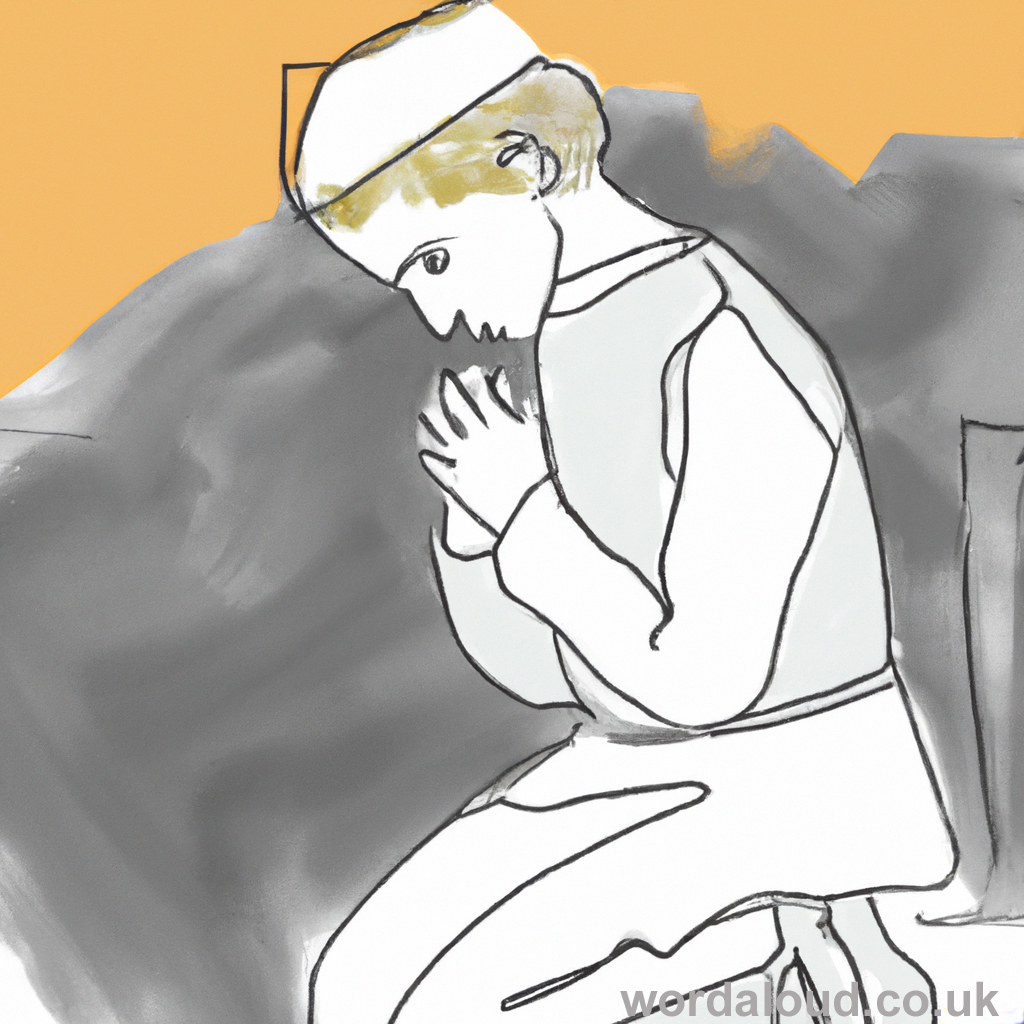Christian Art | Invite The Poor | King James Audio Bible KJV
Luke 14: 12-14 – Week 31 Ordinary Time, Monday (King James Audio Bible KJV, Spoken Word)
12 ¶ Then said he also to him that bade him, When thou makest a dinner or a supper, call not thy friends, nor thy brethren, neither thy kinsmen, nor thy rich neighbours; lest they also bid thee again, and a recompence be made thee.
13 But when thou makest a feast, call the poor, the maimed, the lame, the blind:
14 And thou shalt be blessed; for they cannot recompense thee: for thou shalt be recompensed at the resurrection of the just.
A ruler of the Pharisees has invited Jesus to his house to share a meal, and here Jesus teaches those present concerning the way of blessedness. Jesus teaches us how to live so as to be as much like Jesus as we can be, and so to be included in the Kingdom of God. This, our heavenly reward, should be the only reward we look for.
The normal custom was to share table fellowship with friends and relatives. So it is now. To share a meal represented a great bond of trust between people – ironic here, as the Pharisees hold their silence and study Jesus; and we may think also of Judas Iscariot’s violation of this trust at the Last Supper.
Jesus tells us to break open this closed circle of friendship and mutual interest, and to invite the poor, the sick, the socially excluded. This was unheard of: nobody would wish to share a meal with an unknown person. Yet this is charity.
Jesus tells his listeners that the reason they will be blessed for inviting such people is precisely because they have no way to repay them. This is to give without thought of a return. It is totally gratuitous.
To give in this way brings happiness. Jesus says it is the happiness which God will give us in the resurrection, the resurrection which comes not only at the end of history, but even now. To act in this way is already a resurrection: our way of being has opened to a greater reality; we have been reborn.
19 For it pleased the Father that in him should all fulness dwell;
20 And, having made peace through the blood of his cross, by him to reconcile all things unto himself; by him, I say, whether they be things in earth, or things in heaven.
21 And you, that were sometime alienated and enemies in your mind by wicked works, yet now hath he reconciled
22 In the body of his flesh through death, to present you holy and unblameable and unreproveable in his sight. (Colossians 1: 19-22)
Concluding Prayer | Love Revealed By Jesus Christ
King of heaven and earth, Lord God,
rule over our hearts and bodies this day.
Sanctify us,
and guide our every thought, word and deed
according to the commandments of your law,
so that now and for ever
your grace may free and save us.
We make our prayer through our Lord.
![]()

King James Audio Bible | Endnotes
Invite The Poor | Give With No Thought Of Receiving Back
Luke 14:12-14 instructs us to invite the poor and marginalized to our banquets and feasts, and to give without thought of receiving anything in return. This teaching is grounded in the wider biblical tradition of caring for the poor and oppressed.
Throughout the Bible, we see numerous examples of individuals who put their faith into action by caring for the poor and needy. In the book of Proverbs, we read: ‘He that oppresseth the poor reproacheth his Maker: but he that honoureth him hath mercy on the poor.’ (Proverbs 14:31, KJV) This verse reminds us that our treatment of the poor is a reflection of our relationship with God, and that showing kindness and generosity to those in need is a way of honoring God.
Similarly, in the book of James, we read: ‘Pure religion and undefiled before God and the Father is this, To visit the fatherless and widows in their affliction, and to keep himself unspotted from the world.’ (James 1:27, KJV) This verse emphasizes the importance of caring for those who are vulnerable and marginalized, and of living a life that is focused on pleasing God rather than pursuing worldly pleasures and ambitions.
In Old Testament, we see God’s concern for the poor and oppressed. The book of Isaiah speaks out against those who neglect the poor and oppressed. In Isaiah 58:6-7, we read: ‘Is not this the fast that I have chosen? to loose the bands of wickedness, to undo the heavy burdens, and to let the oppressed go free, and that ye break every yoke? Is it not to deal thy bread to the hungry, and that thou bring the poor that are cast out to thy house? when thou seest the naked, that thou cover him; and that thou hide not thyself from thine own flesh?’ (KJV) This passage reminds us that true devotion to God involves not only spiritual practices like fasting, but also concrete actions to help those who are suffering.
The book of Amos condemns the wealthy for exploiting the poor and failing to act justly. In Amos 2:6-7, we read: ‘Thus saith the Lord; For three transgressions of Israel, and for four, I will not turn away the punishment thereof; because they sold the righteous for silver, and the poor for a pair of shoes; That pant after the dust of the earth on the head of the poor, and turn aside the way of the meek: and a man and his father will go in unto the same maid, to profane my holy name.’ (KJV) This passage reminds us that neglecting the needs of the poor and marginalized is a serious sin in the eyes of God.
The book of Proverbs contains numerous sayings about the importance of generosity and compassion: ‘He that hath pity upon the poor lendeth unto the Lord; and that which he hath given will he pay him again.’ (Proverbs 19:17, KJV)
The call to care for the poor and marginalized is not limited to the Old Testament. In Matthew 25:31-46, Jesus teaches that we will be judged based on how we treat the least of these – those who are hungry, thirsty, naked, sick, and in prison. Jesus identifies himself with these vulnerable people, saying: ‘ And the King shall answer and say unto them, Verily I say unto you, Inasmuch as ye have done it unto one of the least of these my brethren, ye have done it unto me.’ (Matthew 25:40, KJV) This passage reminds us that our treatment of the poor and vulnerable is directly linked to our relationship with Christ, and that we will be held accountable for our actions.
Jesus lived a life of compassion and care for the poor and marginalized. Jesus spent time with lepers, prostitutes, and tax collectors – those who were considered outcasts in society. Jesus taught his followers to love their enemies and to turn the other cheek, emphasizing the importance of forgiveness and reconciliation. In the Sermon on the Mount, Jesus proclaimed: ‘Blessed are the poor in spirit: for theirs is the kingdom of heaven.’ (Matthew 5:3, KJV) This statement highlights the value and worth of those who are poor and marginalized in the eyes of God.
In the Catholic tradition the principle of ‘preferential option for the poor’ emphasizes the importance of prioritizing the needs of the poor and vulnerable in our actions and decisions. Pope Francis has frequently spoken out about the need to care for the poor and marginalized, calling on Christians to ‘defend the dignity of every person, especially the poorest and most vulnerable’.








